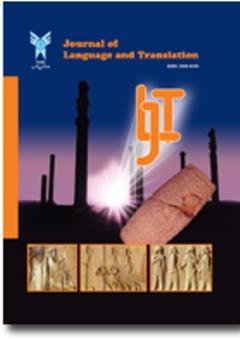Gendered Communication in Iraqi TV Talk Shows: A Cognitive Sociolinguistic Analysis of Conversational Patterns
الموضوعات : نشریه زبان و ترجمهNoor Muhammed Nooruldin Ars Majidi 1 , Atefesadat Mirsaeedi 2 , Alia Badr Abdullah Al- Jumaah 3 , Sahar Najarzadegan 4
1 - Department of English Language, Isfahan (Khorasgan) Branch, Islamic Azad University, Isfahan, Iran
2 - Department of English Language, Isfahan (Khorasgan) Branch, Islamic Azad University, Isfahan, Iran
3 - English Department, College of Arts, University of Basrah, Basrah, Iraq
4 - Department of English Language, Isfahan (Khorasgan) Branch, Islamic Azad University, Isfahan, Iran
الکلمات المفتاحية: Language Assessment Literacy, Reflective Practices, Teacher Professional Development, Self-Assessment, Iranian EFL Teachers, Mixed-Methods, Educational Policy,
ملخص المقالة :
This study investigates the impact of various reflective practices—Reflection-in-Action, Reflection-on-Action, and Reflection-for-Action—on the Language Assessment Literacy (LAL) of Iranian EFL (English as a Foreign Language) teachers. The research addresses a critical gap in teacher development by examining how self-reflective processes can enhance the knowledge, skills, and principles required for effective language assessment. A mixed-methods approach was employed, involving 100 teachers from institutions in Tehran and Karaj. Data collection involved pre- and post-tests, interviews, and classroom observations, analyzed through both statistical methods (ANOVA) and thematic analysis. Findings revealed significant improvements in LAL, particularly with Reflection-for-Action, where teachers demonstrated better alignment of assessments with instructional goals and improved feedback mechanisms. Qualitative insights suggested that these reflective practices helped teachers foster more student-centered assessment strategies, enhancing both formative and summative evaluation processes. The findings of this study contribute to both theory and practice by integrating reflection into teacher education frameworks. Implications for policy and practice are significant: teacher training programs should incorporate structured reflection to foster deeper pedagogical insights, better assessment practices, and more equitable student outcomes. Furthermore, the findings emphasize the need for context-specific training that accounts for cultural influences on teacher attitudes and behaviors toward assessment. In light of the evolving educational landscape, this study underscores the potential of reflective practice in bridging gaps in language assessment literacy and promoting continuous professional growth.
Al-Jabiri, H. (2019). Gender hierarchies in Iraqi media: Reinforcement of patriarchal norms in public discourse. Journal of Middle Eastern Media, 12(2), 215-234.
Al-Mousawi, N. (2017). Authority figures and media representation in Iraq: A gender analysis. Iraqi Journal of Media Studies, 5(1), 144-159.
Baxter, J. (2016). Gender and language in media contexts: Analyzing power dynamics. Journal of Sociolinguistics, 20(3), 401-422.
Evans, V., & Green, M. (2023). Cognitive sociolinguistics: Language, mind, and social meaning. Oxford University Press.
Holmes, J. (2020). Gendered talk at work: Language and power in the professional workplace (2nd ed.). Wiley-Blackwell.
Holmes, J. (2023). The evolving role of gender in conversational control in media discourse. Media and Communication Studies, 29(2), 57-78.
Meyerhoff, M. (2023). Turn-taking and conversational dynamics: Gender differences in media and society. Pragmatics and Society, 12(1), 25-42.
Purba, D., Smith, R., & Benavidez, J. (2023). Collaboration or dominance: Gendered language use in Indonesian media talk shows. Journal of Pragmatics, 45(3), 92-112.
Sacks, H., Schegloff, E. A., & Jefferson, G. (2022). A simplified system for the organization of turn-taking for conversation. Language, 50(4), 696-735.
Tannen, D. (2022). You just don't understand: Women and men in conversation (3rd ed.). HarperCollins.


